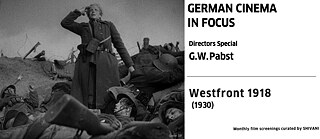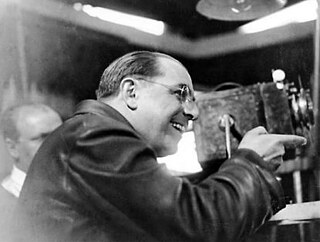Film screening
Westfront 1918 by G.W.Pabst

German Cinema in Focus
The next film to be screened in our ongoing film series German Cinema in Focus curated by Shivani is Westfront 1918, directed by G.W. Pabst. This is the second of four films in the sub-section Directors Special, spotlighting G.W. Pabst, one of the masters of early German Cinema.
Based on the novel Vier von der Infanterie by Ernst Johannsen, Westfront 1918 depicts the last months of World War I. A group of four German foot soldiers live through the harsh existence of trench warfare in France. They try and fail to find brief solace in a nearby village but cannot escape the sense of fear that fills everyone as the war continues on. One of the soldiers, Karl, returning home on a leave has to confront the grim reality of wartime poverty and the devastating impact it has on his family. He eventually has to go back to continue fighting in the western front and just in time to face the attacks by French tanks.
''Pabst produced this film with the intention of portraying war as realistically and as unadorned as possible. He has therefore subjected his story to a certain dramatic chronology in which there are no moments of great tension, just an almost brutal succesion of events.'' (Jerzy Toeplitz in History of Film.)
Westfront 1918
by Georg Wilhelm Pabst
1930 | 97 min.| b&w | German with English Subtitles

His films from the late 1920s and 1930s, contain a strong emphasis on the interrelationship between social conditions and the individual delving into how regular people grapple with the political turbulence, economic crises, and ethical decay that collectively contributed to the destabilization of the Weimar Republic. Some of his iconic films include Joyless Street (1925), Secrets of a Soul (1926), Pandora’s Box (1929), Diary of a Lost Girl (1929).
During the early 1930s, he transitioned into creating politically left-leaning films, including notable works like Westfront 1918 (1930), The Threepenny Opera (1931), and Comradeship (1931). However, this phase was short-lived because he was forced to cooperate with the Third Reich in producing propaganda films, which negatively impacted his career. Following the conclusion of the war, Pabst relocated to Vienna and directed films that strongly condemned anti-Semitism that helped restore his reputation. He died in 1967.
Details
Goethe-Institut / Max Mueller Bhavan Bangalore
716, CMH Road
Indiranagar 1st Stage
Bangalore
560038
@@country@@
Language: German with English subtitles
Price: Free
Part of series German Cinema in Focus